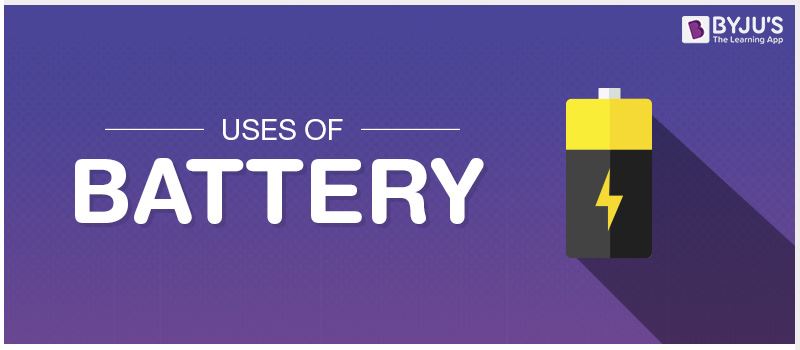
Batteries mainly provide backup power during a power outage. At home, the batteries are typically connected to electrical appliances so that the appliances can still receive power if the power goes down. For example, utilities can charge customers different rates at different times of the day. Batteries can be used by these customers to manage their energy needs by storing energy during low-cost times and discharging energy during high-cost times. Batteries can store solar and wind energy and can discharge the energy when it is needed the most. Let us explore the applications and uses of batteries in this article.
| Table of Contents: |
Applications of Batteries
The small essential components that can operate many devices are the batteries. It has become one of the key components in our everyday lives. There are some batteries which can be recharged and are used in mostly each and every sector. Some of the applications of the batteries are given below.
- House
- Health Instruments
- Medical
- Logistics and construction
- Firefighting and Emergency
- Military
Uses of Batteries
Battery Use in Home
We depend on batteries for several gadgets that we use in our house. Devices like remote controls and torches are powered by disposable batteries. Mobile phones, handheld video game consoles, digital cameras, and many other devices use rechargeable batteries, such as alkaline batteries. Appliances that consume too much power, such as laptops and other devices, are powered by advanced batteries like lithium batteries.
Battery Use in Health Instruments
There are multiple uses of batteries in different health instruments. Artificial limbs, insulin pumps, hearing aids, and valve assistance devices are some instruments that use batteries to function. Mercury batteries are useful for photographic light metres and electronic devices such as real-time clocks in appliances.
Battery Use in Medical Sector
‘Batteries are used in the medical sector to a great extent. ECG heart monitor is connected to a battery so that it can be moved with the patient and is always ON for showing the patient’s vitals. Rechargeable batteries like lithium-ion and nickel-cadmium batteries are frequently utilised in hospitals.
Battery Uses in Logistics and Construction
Heavy-duty batteries are employed to power equipment such as forklifts because exhaust fumes and carbon monoxide are generated while combustion can be dangerous in confined workspaces. Batteries used in automobiles are lead-acid batteries.
Battery Use in Firefighting and Emergency Response
Batteries are used in radios, which are crucial for emergency response. Large batteries are required for these radios to store large charges. Batteries are used in ECGs, flashlights, and even metal and fire detectors. These tools save lives daily.
Batteries Uses in Military Operations
The batteries which offer both high energy and power density are widely used in military operations. Batteries are used in radios which are used to communicate. Even infrared goggles and different field devices are powered by batteries. Lithium batteries provide a much longer life to devices, and silver oxide batteries are used in missiles and submarines.
Battery Use in Vehicle
In vehicles, electric-vehicle batteries (EVs) are frequently used. The electric motors of electric vehicles are powered by this battery. Electric vehicle batteries are commonly rechargeable. Electric vehicles typically employ lithium-ion batteries.
RELATED ARTICLES:
| Uses of Electricity | Uses of Transformer |
Frequently Asked Questions – FAQs
Can solar energy be stored in batteries?
Which type of battery is usually used in electric vehicles?
What is a battery?
Generally, a battery consists of one or more cells arranged in series or parallel combinations to produce a voltage of desired levels. Chemical reactions that take place in batteries create a flow of electrons in a circuit.
Does a portable Electrocardiogram (ECG) heart monitor need a battery to operate?
List some applications of batteries?
Applications of batteries are:
- House
- Health Instruments
- Medical
- Logistics and construction
- Firefighting and Emergency
- Military
These are some applications and uses of batteries. If you wish to know about various interesting concepts, download BYJU’S – The Learning App.

Comments